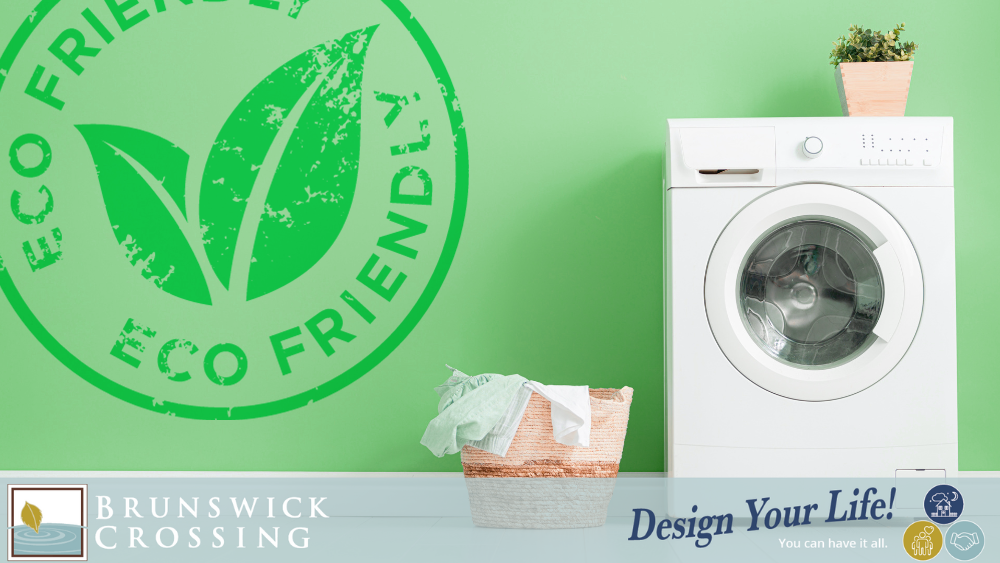Electrical appliances have been making our lives easier for centuries. It seems every year there is a new invention that is more convenient for our everyday life. Yet, we still have strides to take when it comes to another key factor: eco-friendliness.
Everyone has a part to play in keeping our planet healthy. If you’re ready to protect the environment while also saving money, learn how to find top-notch eco-friendly appliances by reading on:
Benefits of Eco-Friendly Appliances
Energy conservation. The key benefit of eco-friendly appliances is that they perform with minimal energy consumption. In other words, they do the same job with less energy. It is an easy and cost-effective way to combat climate change.
Saving money. Less energy consumed means lower energy bills. Although an energy-efficient product might cost you more upfront, it will save you money in the long run.
Health and safety. Purchasing eco-friendly appliances also come with many of the bells and whistles that could keep you and your family safe. For example, refrigerators can include sensors that maintain ideal temperatures and humidity. This keeps your food fresh.
ENERGY STAR
One of the best ways to find energy-efficient appliances is to watch for ENERGY STAR certification. ENERGY STAR is a “government-backed symbol for energy efficiency, providing simple, credible, and unbiased information that consumers and businesses rely on to make well-informed decisions.” They help people save money and protect the environment by making it easier for them to purchase eco-friendly products.
In 2020, consumers saved 240 billion kilowatt-hours of electricity and avoided $24 billion in costs thanks to ENERGY STAR. With the ever-changing market, they have updated their specifications for products over the years. That’s why ENERGY STAR certification is the gold standard for finding truly energy-efficient products.
Finding Eco-Friendly Appliances
There are several options out there for varying budgets when purchasing eco-friendly appliances. It’s not one size fits all. Here are some qualities to consider for some of the top energy-efficient appliances:
Refrigerator
When purchasing a refrigerator, there are many factors to consider that will impact energy consumption. First, the bigger the refrigerator, the more energy is consumed. ENERGY STAR recommends 16-20 cubic feet models for best energy efficiency. Second, fewer doors mean less opportunity for air leakage. Maximize savings by minimizing doors. Third, select refrigerators with lower global warming potential (GWP). A lower GWP reduces the environmental impact if the refrigerant is accidentally released. Finally, don’t forget to recycle your old refrigerator.
Light Bulbs
Light bulbs may be small, but they are mighty. Just think about how many you have in your house and how long you use them every day, especially during the winter. ENERGY STAR recommends LED lights, which are 90% more efficient at light production than incandescent. They also last 15 times longer. They also last 15 times longer and come in a wide range of colors to match the temperature.
Dishwasher
When searching for an eco-friendly dishwasher, there are two main factors to consider. First, pick one that is the right size for you and your family. Consider the load capacity. A more compact dishwasher may require you to do more loads and use more energy. Second, pick a dishwasher with several options for wash cycles. An auto-sensing cycle will detect how dirty or clean the water is, which will indicate when it’s time to stop running. If a dishwasher doesn’t have that auto-sensing, then choose something with multiple cycle options. You can pick the right cycle for your dishes and not use unnecessary energy.
Washing Machine
Similar to dishwashers, one of the main factors when it comes to washing machines is the size. Think about the size of the loads that you run. ENERGY STAR also recommends front-load washing machines, which use 45% less energy and 50% less water than top-loading. And finally, consider the technology that improves the washing machine's efficiency.
Dryer
Once again, the size of the dryer and the loads you run every week will greatly impact efficiency. Clothes should be able to tumble freely in the drum. Therefore, too large of a load will take longer to dry, but too small of a load loses efficiency. Several features increase performance. Sensors that detect the dryness of clothes can save energy. Low heat, delayed start, and steam cycle settings also allow you to save energy. And finally, the right heat pump can also make a difference—ENERGY STAR heat pumps use almost 30% less energy.
When it comes to protecting the environment, no eco-friendly measure is too little. At Brunswick Crossing, our builders are committed to crafting energy-efficient homes that are good for both the environment and your wallet. If you’re looking for more ways to go green, our community garden allows you to connect with nature, eat healthier, and lower carbon emissions.
Check out the variety of models and resort-style amenities available at Brunswick Crossing. Take a virtual tour today to start designing your life.




